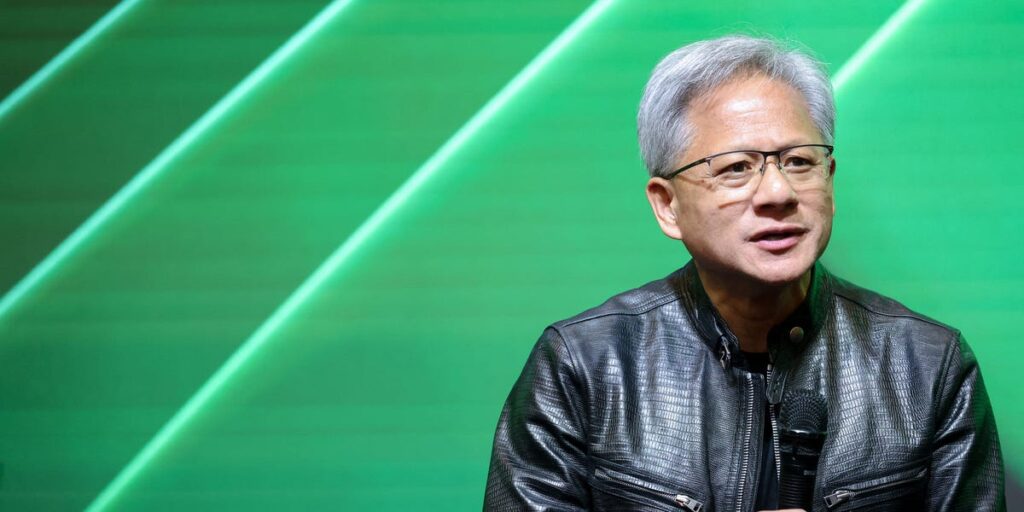Jensen Huang, the CEO of Nvidia, thinks that China’s AI researchers are some of the very best in the world — so it’s no surprise that US companies are bringing them on board.
“The researchers, the AI scientists in China, they’re world-class. These are not Chinese AI researchers, they’re world-class AI researchers,” Huang said in an interview with Ben Thompson, author of “Stratechery.” “You walk up and down the aisles of Anthropic or OpenAI or DeepMind, there’s a whole bunch of AI researchers there, and they’re from China. Of course, it’s sensible, and they’re extraordinary, and so the fact that they do extraordinary work is not surprising to me.”
As a whole, the country is doing “fantastic” in the AI market, Huang said, with models from Chinese-based companies — such as DeepSeek and Manus — emerging as powerful challengers to systems designed in the US.
“Let’s face it, DeepSeek is deeply excellent work,” Huang said. “To give them anything short of that is a lack of confidence so deep that I just can’t even tolerate it.”
The challenges presented by international rivals, Huang added, are absolutely essential to the continued improvement of AI companies in the US.
“Everybody loves competition. Companies need competition to inspire themselves, nations need that, and there’s no question we spur them,” he said. “However, I fully expected China to be there every step of the way. Huawei is a formidable company. They’re a world-class technology company.”
Intense competition could become problem though, Huang said, if US-based companies don’t have all the tools they need. Building out the “ecosystem” required to support AI, he said, is already difficult — and Huang believes operations could be kneecapped by restrictive regulations. He was particularly critical of the “Diffusion rule,” a Biden-era policy that would’ve established limits on exports of US-made AI chips come May 15.
“You can’t just say, “Let’s go write a diffusion rule, protect one layer at the expense of everything else.” It’s nonsensical,” he said. “The idea that we would limit American AI technology right at the time when international competitors have caught up, and we pretty much predicted it.”
On May 12, the White House announced it would rescind the rule, mere days before it was set to go into effect.
“The idea of AI diffusion limiting other countries access American technology is a mission expressed exactly wrong. It should be about accelerating the adoption of American technology everywhere before it’s too late,” Huang said. “If the goal is for America to lead, then AI diffusion did exactly the opposite of that.”
Competition flows both ways, he said — and American companies should be battling it out in the Chinese market.
“The idea that we would have America not compete in the Chinese market, where 50% of the developers are, makes absolutely no sense from a computing infrastructure, computing architectural perspective,” Huang said. “We ought to go and give American companies the opportunity to compete in China, offset the trade deficit, generate tax income for the American people, build, hire jobs, create more jobs.”
Read the full article here


